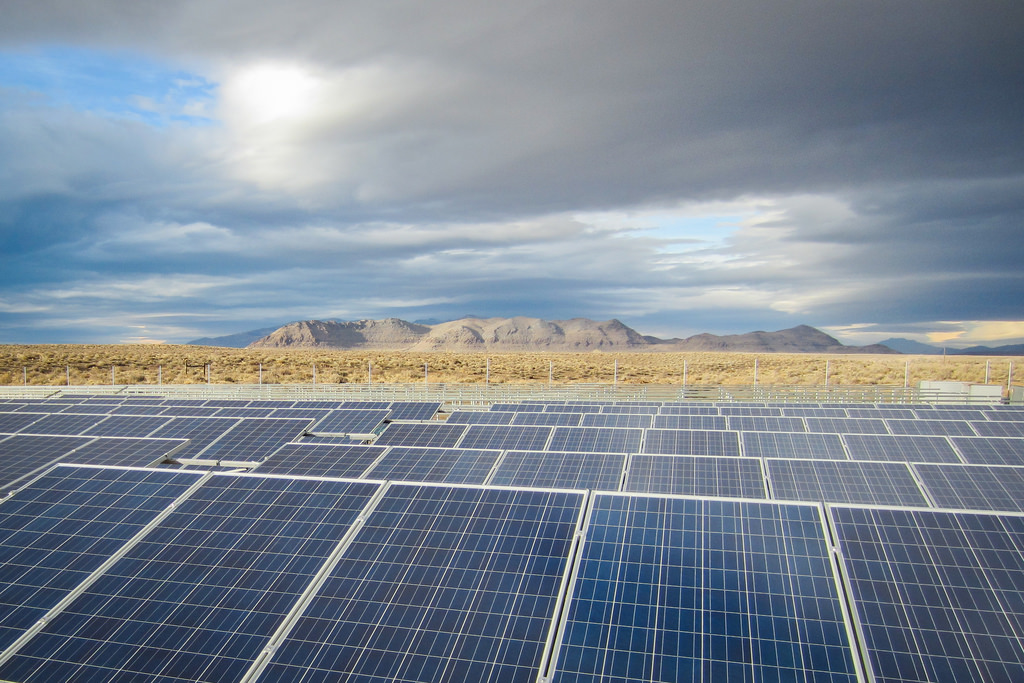The solar industry is growing at a rapid rate, especially in countries like China, which are investing heavily in renewable energy. However, a new study suggests that by the end of 2017, solar energy would rival the presence and influence of nuclear plants on a global scale. This would certainly be good news, especially if it means less chance of another Fukushima occurring.
The study was conducted by researchers at the GTM Research firm, which notes how the energy capacity of every solar farm and plant in the world would surpass that produced by nuclear sources in short order. This is even with the downgrade that the global solar market has received for the year.
“According to the Nuclear Energy Institute, there are 391.5 gigawatts of nuclear plants operating around the world. When the year closes out, there will be roughly 390 gigawatts of solar PV plants spread across the globe, according to estimates from GTM Research,” the report reads.
That conspicuous 1.5-gigawatt difference might be telling, but the researchers suggest that the actual final numbers will likely be bigger due to increased enthusiasm in the Chinese market. On that note, it’s worth pointing out that this achievement applies to only the raw power that is produced by both sources.
As Futurism points out, there is also the electricity generation to take into consideration. Nuclear plants could produce 2,476,671 gigawatt-hours of energy, which is substantially higher than the 375,000 gigawatt-hours that solar can produce. So, if the discussion pertains to overall power production, nuclear is still in the lead.
Of course, there’s also the matter of nuclear waste to consider, not to mention the dangers that a nuclear meltdown would pose. Numerous advancements in the field of regulating nuclear energy have made it safer. However, as the incident involving the Fukushima nuclear plant in Japan proves, the risks still exist.



 Instagram Outage Disrupts Thousands of U.S. Users
Instagram Outage Disrupts Thousands of U.S. Users  SpaceX Reports $8 Billion Profit as IPO Plans and Starlink Growth Fuel Valuation Buzz
SpaceX Reports $8 Billion Profit as IPO Plans and Starlink Growth Fuel Valuation Buzz  Nintendo Shares Slide After Earnings Miss Raises Switch 2 Margin Concerns
Nintendo Shares Slide After Earnings Miss Raises Switch 2 Margin Concerns  Elon Musk’s SpaceX Acquires xAI in Historic Deal Uniting Space and Artificial Intelligence
Elon Musk’s SpaceX Acquires xAI in Historic Deal Uniting Space and Artificial Intelligence  SoftBank Shares Slide After Arm Earnings Miss Fuels Tech Stock Sell-Off
SoftBank Shares Slide After Arm Earnings Miss Fuels Tech Stock Sell-Off  Nvidia Confirms Major OpenAI Investment Amid AI Funding Race
Nvidia Confirms Major OpenAI Investment Amid AI Funding Race  Amazon Stock Rebounds After Earnings as $200B Capex Plan Sparks AI Spending Debate
Amazon Stock Rebounds After Earnings as $200B Capex Plan Sparks AI Spending Debate  Alphabet’s Massive AI Spending Surge Signals Confidence in Google’s Growth Engine
Alphabet’s Massive AI Spending Surge Signals Confidence in Google’s Growth Engine  OpenAI Expands Enterprise AI Strategy With Major Hiring Push Ahead of New Business Offering
OpenAI Expands Enterprise AI Strategy With Major Hiring Push Ahead of New Business Offering  SpaceX Prioritizes Moon Mission Before Mars as Starship Development Accelerates
SpaceX Prioritizes Moon Mission Before Mars as Starship Development Accelerates  Anthropic Eyes $350 Billion Valuation as AI Funding and Share Sale Accelerate
Anthropic Eyes $350 Billion Valuation as AI Funding and Share Sale Accelerate  Jensen Huang Urges Taiwan Suppliers to Boost AI Chip Production Amid Surging Demand
Jensen Huang Urges Taiwan Suppliers to Boost AI Chip Production Amid Surging Demand  Nvidia Nears $20 Billion OpenAI Investment as AI Funding Race Intensifies
Nvidia Nears $20 Billion OpenAI Investment as AI Funding Race Intensifies  Nvidia, ByteDance, and the U.S.-China AI Chip Standoff Over H200 Exports
Nvidia, ByteDance, and the U.S.-China AI Chip Standoff Over H200 Exports  SpaceX Updates Starlink Privacy Policy to Allow AI Training as xAI Merger Talks and IPO Loom
SpaceX Updates Starlink Privacy Policy to Allow AI Training as xAI Merger Talks and IPO Loom 





























